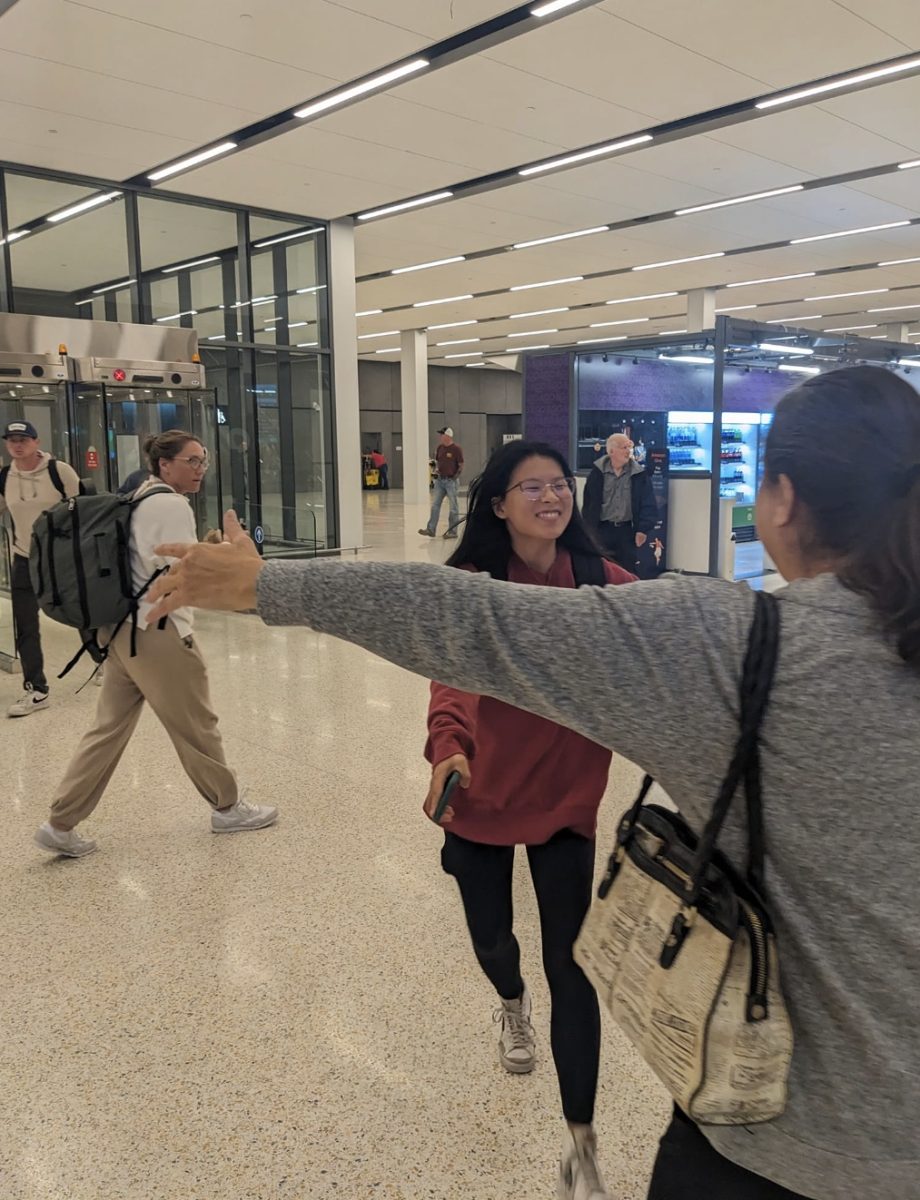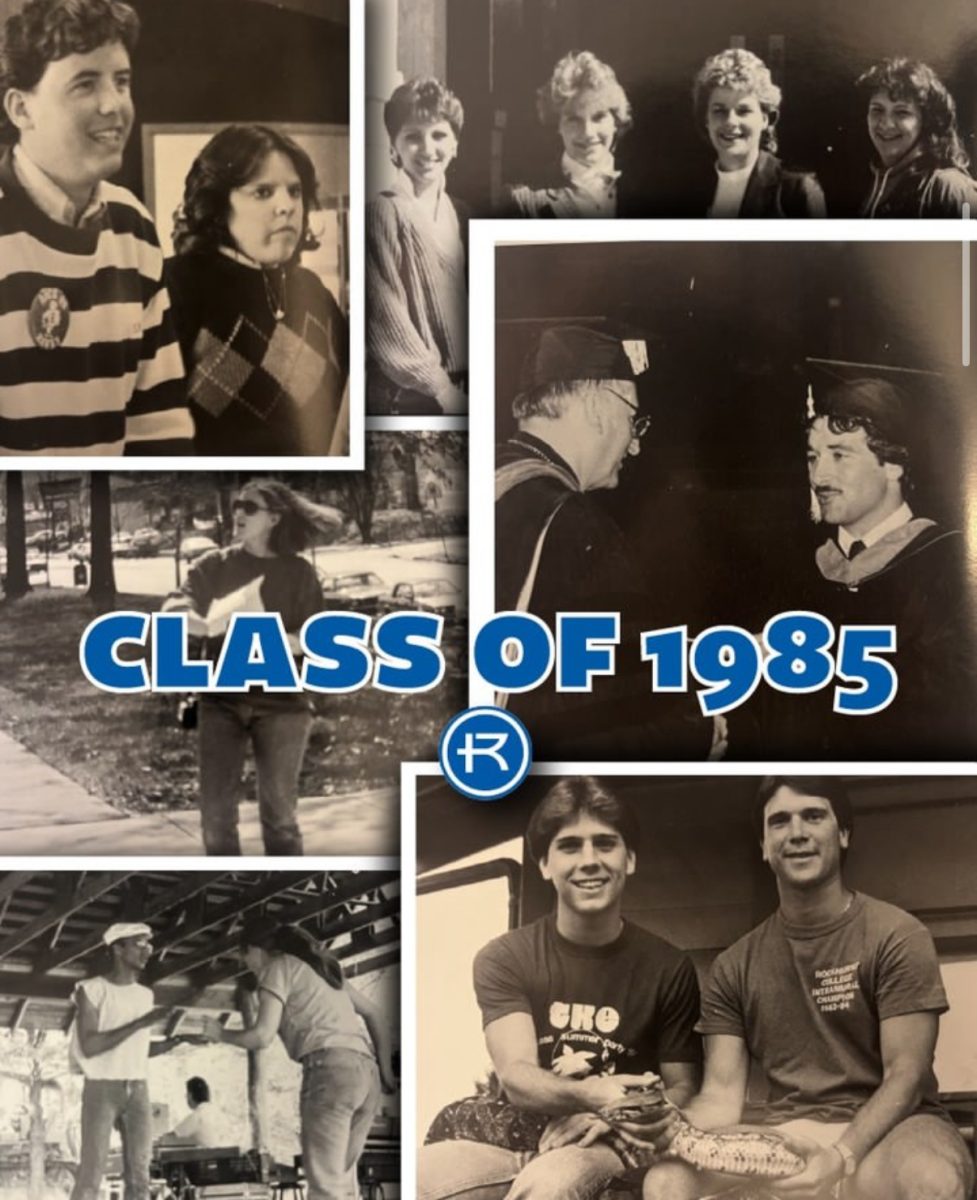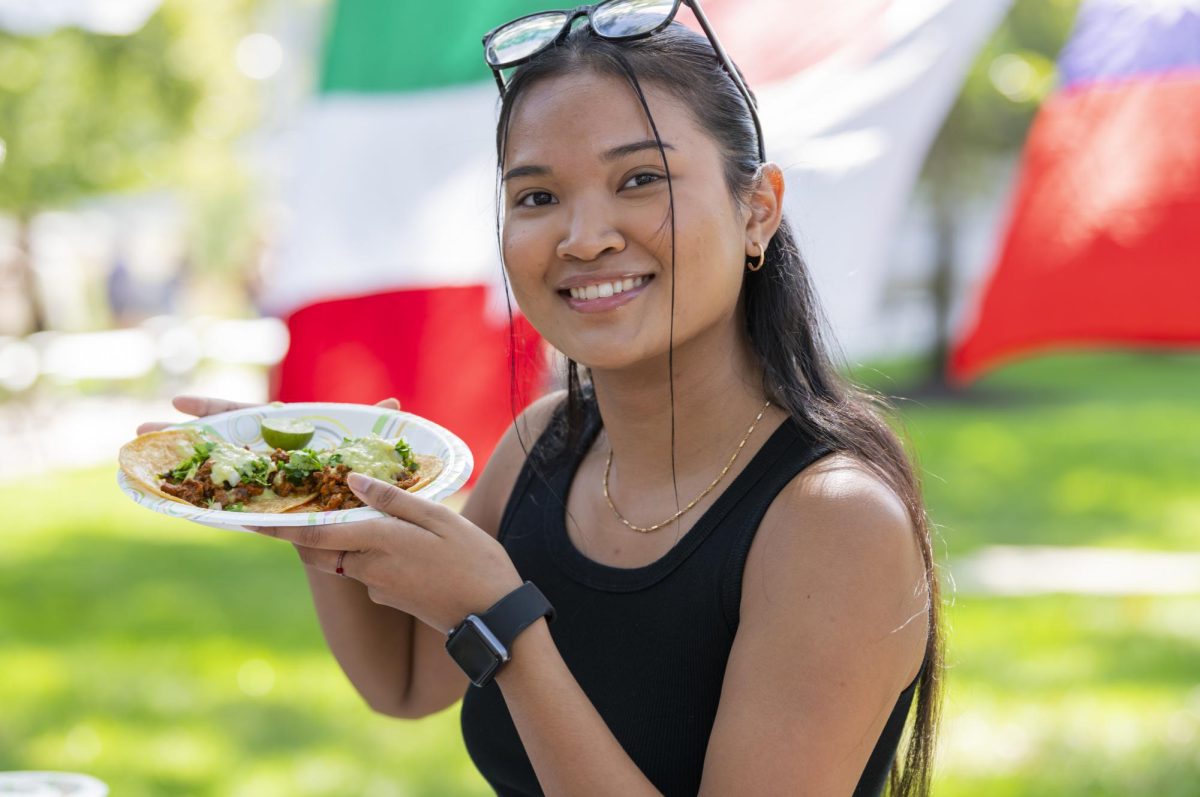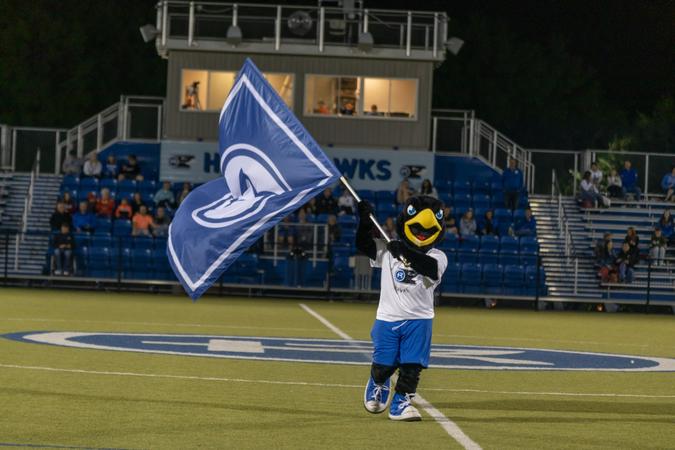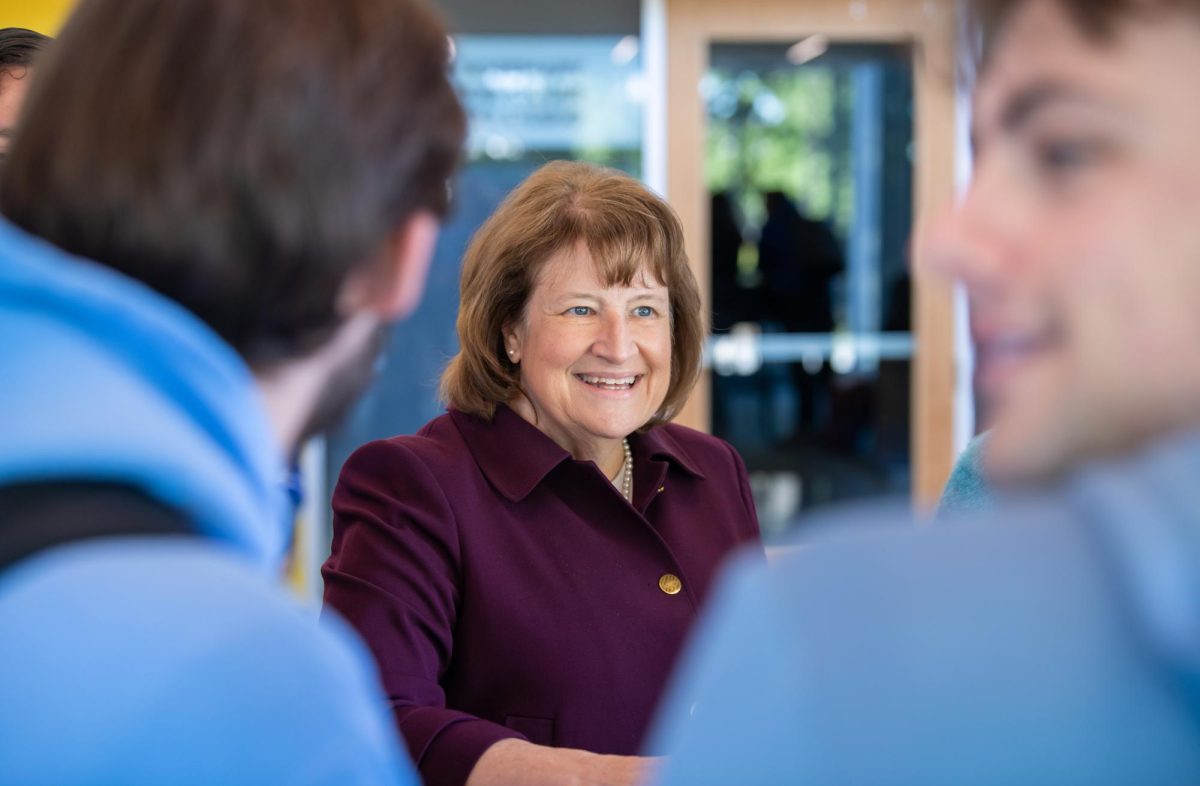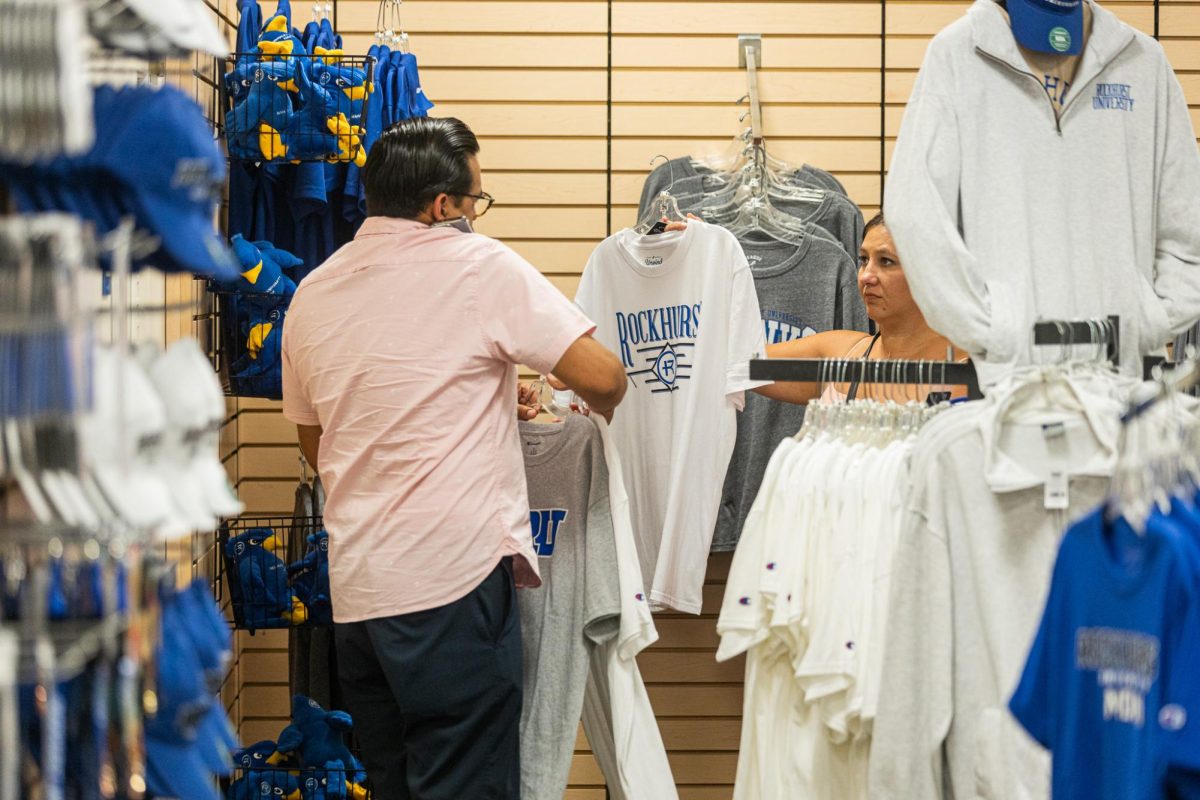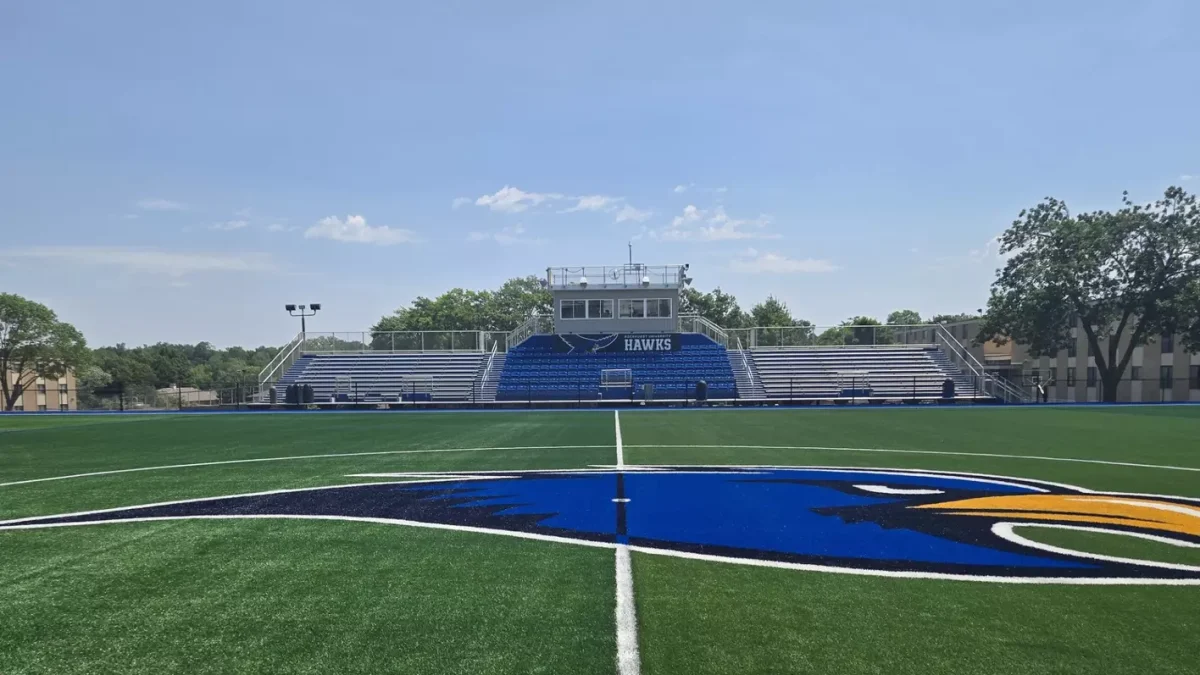After a week of moving in and out of a Jerusalem bomb shelter and an arduous 35-hour journey out of Israel, third-year Rockhurst student Alayna Haddock is back in Kansas City, Missouri.
Her arrival home, amid the outbreak of war between Israel and Hamas in the Middle East, was a welcome relief for her mother, Dr. Risa Stein, a professor of psychology at Rockhurst, who had been working frantically to devise a plan to ensure her daughter’s safe evacuation.
Haddock, an International Business major at Rockhurst, was completing credits for the 2023-2024 academic year at Hebrew University in Jerusalem and had been in Israel for about a month at the time hostilities escalated.
Haddock spoke highly of her time at Hebrew University, with the first month filled with adventures alongside new friends.
“I met a whole bunch of people from different parts of the world,” she said. “It was fun going out and exploring Israel.”
However, the scenario shifted drastically on Oct. 7. Haddock woke up to messages from friends checking in on her. Confused, she checked the news to find war had broken out in the region.
“My phone was blowing up with all my friends that were sending me texts like, ‘OMG, are you okay?’ ‘Are you in the bomb shelter right now?’ ‘What’s happening?’ ‘Are you safe?’” Haddock said.
Back at home, Stein woke up on the morning of Oct. 7 to headlines announcing the beginning of the war. She checked the news and tried to keep in close contact with her daughter while navigating the eight-hour time difference. She did her best to continue on with teaching and life.
“The worst part was I would go into my classroom and get a message right before class that the bomb sirens were blaring and Alayna was going into the shelter. I would be nervous throughout class,” Stein said. “Then, between my 9 and 10 o’clock classes, I’d be frantically trying to message her, and she wouldn’t respond. That’s when I would panic. Then I’d have to go into my 10 o’clock class, not knowing what was going on. Then, I’d come out of my 10 o’clock class frantically text her again. And typically, Alayna’s response was ‘Oh, I was napping.’”
At the time the violence broke out, Hebrew University was on its holiday break. Haddock had planned a trip to Europe with friends but canceled because she was sick. She also had considered attending the Supernova music festival in Re’im, Israel, near the Israel-Gaza border where on Oct. 7 Hamas militants killed at least 260 attendees — with many more injured and taken hostage — but she decided against it because of her illness and the three-hour bus ride.
Alone in her apartment while bomb sirens wailed outside, Haddock retreated to her apartment’s bomb shelter, following the routine precautionary instructions provided by Hebrew University during orientation. Each apartment was equipped with one of these safe rooms.
“It’s just like a normal room except more secure,” said Haddock. “The walls are thicker, the windows are more secure, there are metal blinds and there’s a second heavy door in addition to the normal wooden door.”
Despite the circumstances, Haddock remained calm. She did not feel extremely threatened in Jerusalem, which was north of where most of the conflict near Gaza was occurring. She spent a lot of time in the following days with friends, having sleepovers, playing cards and just hanging out. But Haddock recalls one of her friends panicking.
She started puking and freaking out. She kept waking me up in the middle of the night saying, “Was that the bomb siren? … I would say ‘No, it’s okay, we’re all going to be okay,’” said Haddock.
Haddock stayed inside her apartment and avoided public transportation. The city became noticeably quiet. Her only outing was a 10-minute walk to the grocery store, accompanied by a group of people.
While other universities mandated their students’ departure from Israel, Haddock, independently enrolled at Hebrew University, faced the decision herself. She ultimately decided to go back to Kansas City.
With that decision made, Stein worked tirelessly to coordinate her daughter’s complicated journey home.
She contacted the U.S. embassy, other universities, colleagues, airlines, rideshare services and taxi companies. Every step was filled with forms, setbacks and frustration.
It was a crisis every 10 minutes trying to get her back,” Stein said. “Everything from arranging the transportation, to figuring out how she was going to get from the university, to downtown Jerusalem when it was already past midnight in Israel was pretty harrowing.”
Stein contacted several universities with students in Israel before finally hearing back from Brigham Young University, which had a plan to shuttle students through Jordan. After confirming Haddock could join this shuttle, her 35-hour trek home began on Oct. 13.
“I took the shuttle bus to Jordan for two and a half hours,” Haddock said. “At the Jordan border, it took about an hour to get in. There were so many lines and unexpected fees. Then, after I crossed the border, I waited an hour and a half for a taxi, which took about two and a half hours to get to the Amman airport. I eventually got on my flight to Qatar, Texas and Kansas City.”
At 3:30 p.m. on Oct. 14, Haddock finally arrived safely in Kansas City.
As of now, she plans to enroll in Rockhurst for her spring semester and may stop her abroad program for the year entirely. She is continuing to take hybrid classes through Hebrew University’s Rothberg International School despite the eight-hour time difference and 4 a.m. start time.
Haddock urges Rockhurst students to do their research to educate themselves on the 75-year-long Israeli-Palestinian conflict.
“I just wish it would end so nobody else would get hurt. It’s awful what’s happening,” said Haddock, who offered this takeaway from her experience: “Be there for the people that need you to be there for them. Stick together. Be a community.”
Stein, who is grateful for the many Rockhurst colleagues who were “exceptionally supportive” of Haddock and her during this challenging time, hopes the university can create more opportunities to educate the entire community on the topic of Israel and Palestine. She would like to see greater steps toward educating students, faculty and staff, including statements from university leaders in addition to the initial ones from President Cassady and Fr. Hess. Stein believes open discussions with people from all backgrounds would be valuable.
“I think education and looking at what potential biases might exist in our mindsets and having open discussions on campus would be really useful for individuals,” Stein said. “We, as the Rockhurst community, are supposed to be very intentional about the type of service we engage in and the type of open-minded education and conversations we host.”


